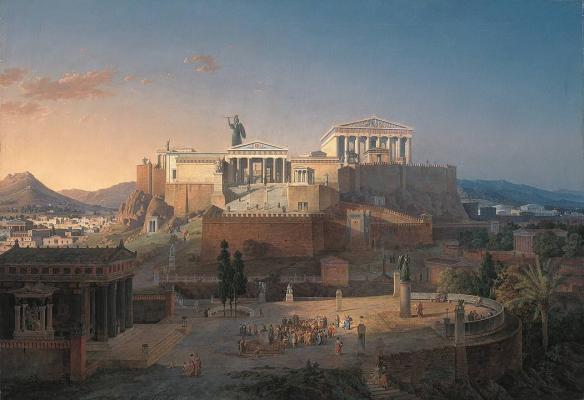Matrix Pop-Up Writing Workshop
Property Confiscation in the Ancient Greek World: Uncertainty, Probability, and Quantification in Historical Analysis
Matrix is located on the 8th floor of Barrows Hall, on the UC Berkeley campus, near Telegraph and Bancroft Avenues, just up the hill from Sather Gate. There are entrances at both ends of the building, but only one of the elevators on the eastern side goes directly to the 8th floor. You can alternatively take the stairs to the 7th floor and walk up the stairs.

If you are interested in workshopping a paper in progress at a Matrix Pop-Up Writing Workshop, please submit a proposal here.
Members of the UC Berkeley community are invited to join a Matrix Pop-Up Writing Workshop to discuss a new paper by Emily Mackil, Associate Professor in the Department of History, entitled “Property Confiscation in the Ancient Greek World: Uncertainty, Probability, and Quantification in Historical Analysis.”
Abstract
Recent research on the ancient Greek economy appears to have reached something close to consensus around the idea that there was sustained economic growth in the Greek world across the period c. 800–300 BCE. What caused this remarkable growth is, however, a matter of some debate, but underlying all the institutionalist explanations is an assertion that equal protection under the law led to a general condition of property security, which incentivized investment and thus contributed to economic growth. I have argued elsewhere that property was in fact not especially secure in the Classical Greek world, and that property security is therefore unlikely to have contributed in any significant way to the economic growth of the period. But that argument was essentially qualitative, and economic arguments benefit particularly from quantification.
The difficulty is that we lack key pieces of data. We want to know the overall rate of confiscation of private property by states in the Greek world, but no ancient source preserves this information. For this reason there is general and profound epistemic uncertainty about this problem. But it is not true that we know nothing. The well-informed historian might articulate a sense of probability as to an answer based on her knowledge of many factors that would shape the answer: overall population size of the Greek world at particular moments in time, populations of individual city-states, percentage of the human population eligible to own land, etc. Probability of the kind that a historian might like to express about a problem like this is subjective; it is essentially an expression of her confidence in the rightness of the answer she provides, or degree of belief. In this sense it is very much like the probability expressed by scholars and analysts in other fields who deal with uncertainty in the future, from stock market performance to risk analysis. This paper therefore represents an attempt to quantify my earlier claim, to model the likelihood that an individual estate owner in the Classical Greek world would experience the sudden and uncompensated loss of his property during his lifetime, what I call, by way of shorthand, property confiscation. I do this by constructing a mathematical model that represents the likelihood of an individual experiencing property confiscation as a function of several other, relatively well understood parameters; by representing my knowledge about the value of these parameters as probability distributions; and by using a Monte Carlo simulation to produce a probability distribution over the likelihood of an individual experiencing property confiscation.
It is hoped that historians of all fields who are interested in quantitative methods, economists, statisticians, and others working on probability, risk, uncertainty, and the use of Monte Carlo simulations in all fields will be interested in participating in the workshop to develop an interdisciplinary dialogue on this approach.



